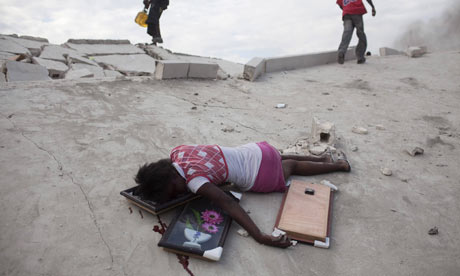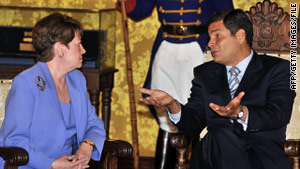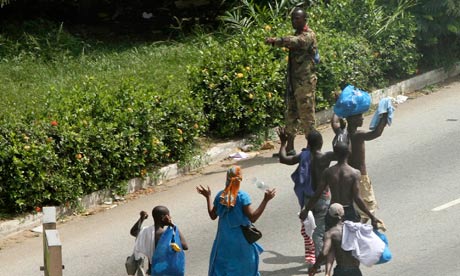
The destruction and devastation from last month’s major earthquake and tsunami off the Japanese coast affected numerous facets of the Asian country's society. The world of sport has not been immune from the consequences of the twin natural disasters
including postponing the world figure skating championships that were to take place in Tokyo and
delaying the start of Japan’s professional baseball league.
Japan’s top soccer league was also forced to put off the start of this season and
no night games will be played due to the problems at the crippled Fukushima Daiichi nuclear plant. An even tougher decision was made on Monday by the Japanese Football Association,
which withdrew the country’s invitation to play in the Copa America hosted by Argentina. According to the BBC:
Japanese Football Association president Junji Ogura said: "The priority at this moment is to continue saving lives and rebuilding the country after the earthquake and tsunami.
"We are sorry to be pulling out because we recognize that we have advanced in football by being close to South American [teams]," Ogura added.
Speculation abounded over that would be the twelfth team to replace Japan in this year’s edition of South America’s premier soccer nation tournament. Julio Grondona, head of the Argentine soccer association (AFA) reportedly offered World Cup
champions Spain the vacant spot. Yet Eduardo Deluca, secretary general of South America’s ruling soccer body (CONMEBOL), said that Spain was never under consideration and
that “Costa Rica is the strongest option”.
Deluca added that a meeting would be
held on Tuesday between representatives of CONMEBOL, AFA, and the firm that owns television rights to the tournament in order to decide who will take Japan’s place.
This year’s Copa America will take place in July and will be made up of the ten CONMEBOL countries and two invitees (Mexico and Japan’s replacement).
This wouldn’t be the first time that a Copa America team needed to be replaced post-haste; in 2001, Argentina dropped out with less than a week to go before the tournament’s start and was replaced by Honduras. The Central American team went on to surprisingly
finish in third place including upsetting Brazil in the quarterfinals.
Image- Reuters
Online Sources- Reuters, BBC Sport, Who Ate All the Pies, El Espectador, Clarin, El Tiempo, asahi.com, Bloomberg
 * Haiti: The debate over ethics in photojournalism was reignited after a photo similar to the above image of a Haitian child shot dead shortly after last year’s earthquake won at the Swedish Picture of the Year Awards.
* Haiti: The debate over ethics in photojournalism was reignited after a photo similar to the above image of a Haitian child shot dead shortly after last year’s earthquake won at the Swedish Picture of the Year Awards.










